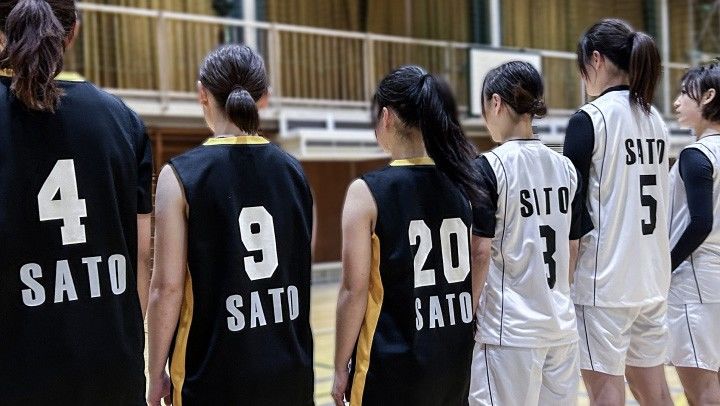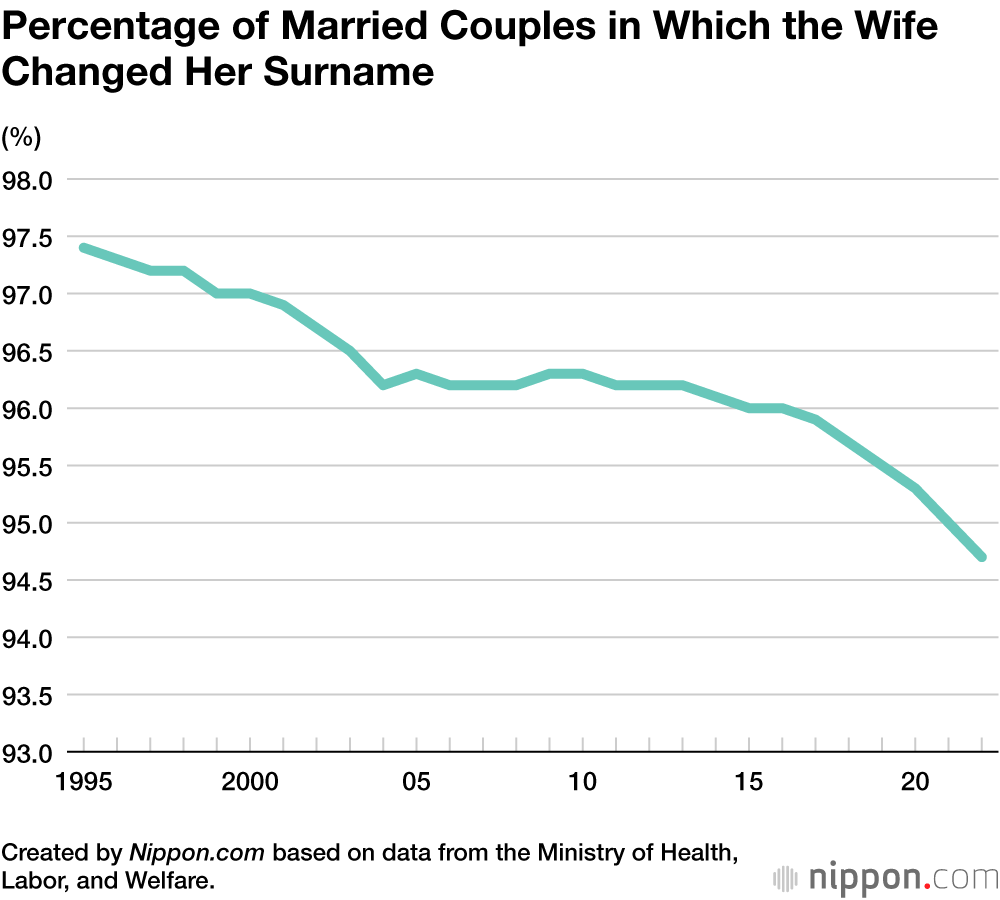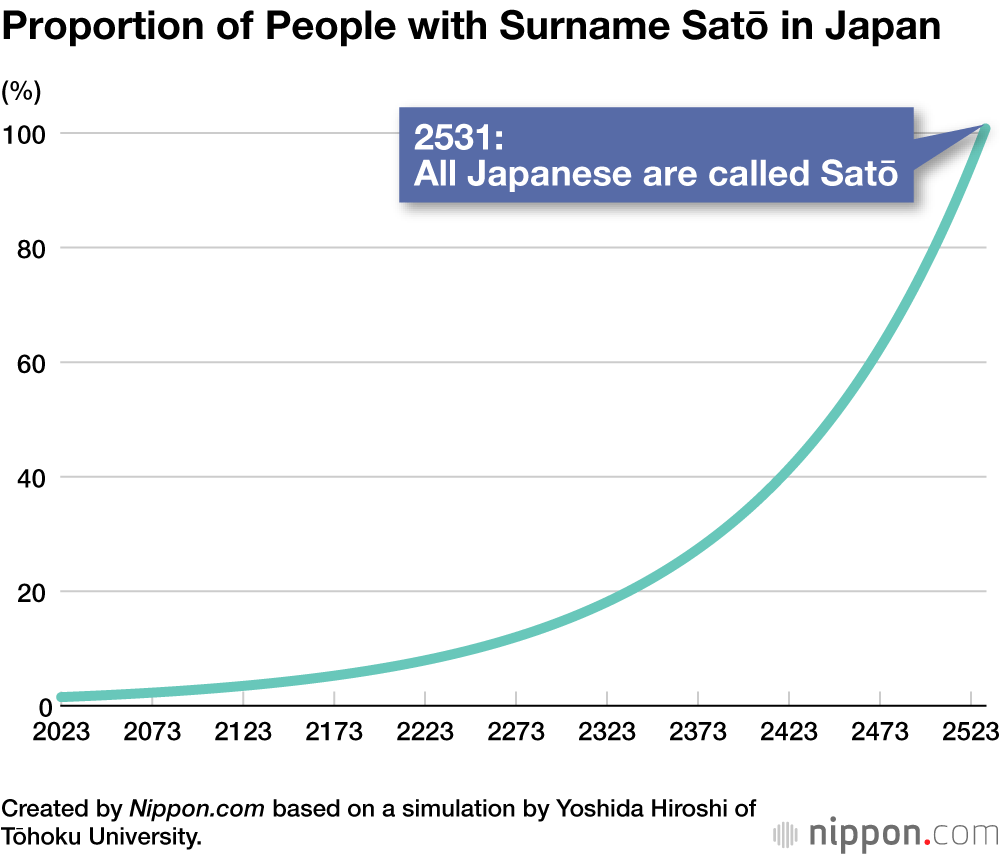
One Nation, One Surname? Professor’s Simulation Imagines a Japan Where Everyone is Satō
Society Family- English
- 日本語
- 简体字
- 繁體字
- Français
- Español
- العربية
- Русский
Article 750 of the Japanese Civil Code stipulates that a husband and wife shall take the same surname of either party at the time of marriage. Japan is the only country in the world that mandates the same surname for married couples (except in the case of international marriages). Yoshida Hiroshi, a professor at the Tōhoku University specializing in the economics of aging, conducted a simulation of how the distribution of various surnames in Japan will change if the current system remains in place.
According to the demographic statistics of the Ministry of Health, Labor, and Welfare, in the case of 478,199 of the 504,930 newly married couples in 2022, or 94.7%, the wife adopted the husband’s surname, while 26,731 of the newlyweds, or 5.3%, decided to share the wife’s surname.
“Satō” is the most common surname in Japan, and Yoshida estimated that it accounted for 1.53% of all surnames as of 2023. He forecasts that various other surnames in Japan will decline as the proportion of people called Satō increases.
An analysis based on demographic statistics of the change in the “Satō population” resulting from marriages, divorces, births, and deaths shows that the population increased by 0.83% during the one-year period from 2022 to 2023. If the system of shared surnames is kept in place, and this annual rate of increase for the Satō surname continues, Yoshida says that half of all Japanese will be called Satō by the year 2446, and in 500 years’ time all Japanese will share that name.
Yoshida also examined what might happen if Japan introduces a selective surname system. On the basis of the results of a 2022 survey conducted by the Japanese Trade Union Confederation (Rengō), which showed that 39.3% of couples would choose to have the same surname under such a system, he calculated that the annual increase in the prevalence of the Satō surname would drop to 0.325%. As a result, all of Japan would not share the Satō surname until the year 3310, or roughly eight centuries later.
In addition, based on future population projections issued by the National Institute of Population and Social Security Research, Yoshida estimated that the Japanese population will fall to just 281,866 by 2531, and a scanty 22 persons by 3310. In other words, as he points out, there is a strong possibility that Japanese will disappear from the planet, due to a falling birthrate, before the point is reached 800 years from now that everyone has the same surname.
Yoshida sees a connection between the declining birthrate and shared surnames among married couples. “In Japan, there is a strong tendency to think that having children should take place after marriage, but having to share the same surname is a major obstacle to getting married. Introducing a flexible system where there is no need to change one’s name, it could well help to increase the number of births.”
(Translated from Japanese. Banner photo courtesy the Think Name Project.)


